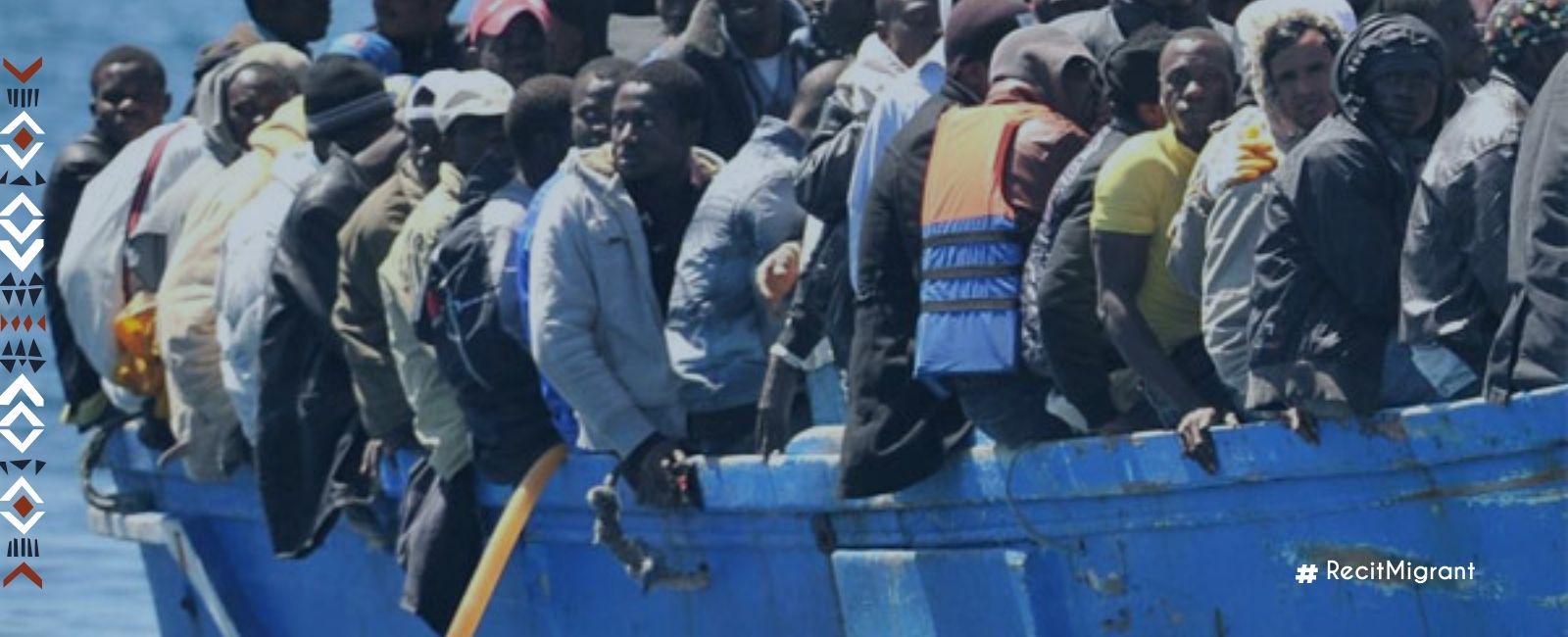

On 8 September 2024, a rare tragedy struck Senegal, particularly affecting the department of Mbour. A fishing boat capsized, resulting in several deaths and displacing many people. Today, some individuals continue to raise their voices, urging action to prevent such disasters from happening again, as people continue to mourn the departed. Surprisingly, the tragic events in Mbour are in no way discouraging more people from attempting irregular migration. This is where the Senegal Association of Victims of Irregular Migration (COVES) steps in, as it strives to open the eyes of young people still drawn to the “adventure of the West” despite the tragic occurrence.
Yatma Diop, spokesman for the victims’ families, reflecting on the reasons behind the exodus of so many young people, had this to say: “We, the parents, are responsible for pushing our children to migrate because we relied solely on our fishing activities, which are no longer as lucrative as they used to be. Our children would return home with insignificant catch, which could barely meet their needs; whereas most of them are married. That’s why they took to migration by sea, hoping for a better life elsewhere,” he said, reflecting on the tragedy in Mbour.
More than six months after the devastating event, the association continues to be on the watch. COVES has continued its surveillance efforts, particularly off the Senegalese coast, where irregular migration is most widespread.
However, before delving deeper into the issue, it is important to briefly examine the causes. “Normal travel procedures are quite cumbersome, and the people in charge are far from being blameless. This is the real problem with visa issuance,” stated Saliou Mbaye, a member of COVES.
As a result, the difficulties in obtaining a normal visa tend to have encouraged the more “daring” to opt for the sea or desert alternative, according to Saliou Mbaye, a returning migrant. “I don’t need to tell you that it has become increasingly difficult to get a visa,” Mbaye said. Even if migrants manage to reach Europe, the struggle doesn’t end there. “Europe has its own realities – there’s the asylum system, and there’s also the language to learn in order to better integrate into European society.
“And for a young person arriving in France, Spain or Italy, time is of the essence, not to mention social pressure. As a result of such pressure, many young people are forced to embark on the adventure of migration”.
“The final part of this fateful process is the return home, which is rarely smooth. What about reintegration into Senegalese society? It’s hopeless, I’d say it’s like shooting in the dark. In practice, it’s not at all convincing, prompts Mbaye.
“So I would not criticise those who want to migrate. As the saying goes, an empty sack cannot stand. Even if it is not the only motivation, a significant percentage of those who want to migrate are driven by the need for economic advancement,” Saliou Mbaye continued by sharing his personal experience.
“Using my own example, I studied for eight years before becoming a senior mechanic. After training, I spent another four years gaining experience through short-term contracts and internships. It wasn’t until the following year that I was able to leave this unstable, precarious situation to provide for my small family. I was 36 years old at the time,” he added.
As you will have gathered, COVES’ main objective in reviewing this ‘battle path’ is to discourage would-be illegal emigrants. The risks of emigrating by land or sea are well known and visa facilitation remains a real bottleneck. Finally, the reintegration of returnees sometimes paints a rather gloomy picture. The fact remains that this type of initiative by the Association should be emulated and further strengthened, as the chances of achieving a broader goal are more than likely.
A persistent phenomenon
According to a statement by the national gendarmerie published on 17 March 2025, during a night patrol on Mbodiène beach (west-central Dakar), the Joal territorial brigade arrested 59 new candidates for migration, including 16 girls.
This figure is in addition to the initial 374 people arrested between Mbour and Fatick during the weekend of 14-16 March 2025. These people, mostly from Guinea, The Gambia, Côte d’Ivoire and Sierra Leone, were attempting to migrate illegally. More than 400 people have now been arrested.
“Seven migration organisers were also arrested and significant logistical resources were seized,” the gendarmerie said. In their desire for a better life in Europe, many migrants, especially young people without jobs, take the dangerous sea route to reach the Canary Islands from West Africa’s coast.
“This new incident is part of a rather unsettling trend”, NGOs reacted on Tuesday 18th March, expressing their “deep apprehension with regard to the upsurge in irregular migration” in a joint press release signed by ADHA – Action pour les Droits Humains et l’Amitié (Action for Human Rights and Friendship) and the Mouvement International d’Apostolat des Milieux Sociaux Indépendants – MIAMSI-SENEGAL (International Movement of Apostolate in the Independent Social Milieus). “Irregular migration is first and foremost a symptom of a more profound malaise, characterised by a lack of economic opportunities, job insecurity and a lack of viable prospects for young people,” the press release said.
According to Frontex, nearly 47,000 people attempted to reach Europe by sea from the West African coast in 2024. This is a record number and an 18% increase on the previous year. In addition, more than 10,400 migrants died or went missing at sea in 2024 while trying to reach Spain, according to the NGO Caminando Fronteras.
Recently Published
Subscribe to our newsletter!
Quick Links


